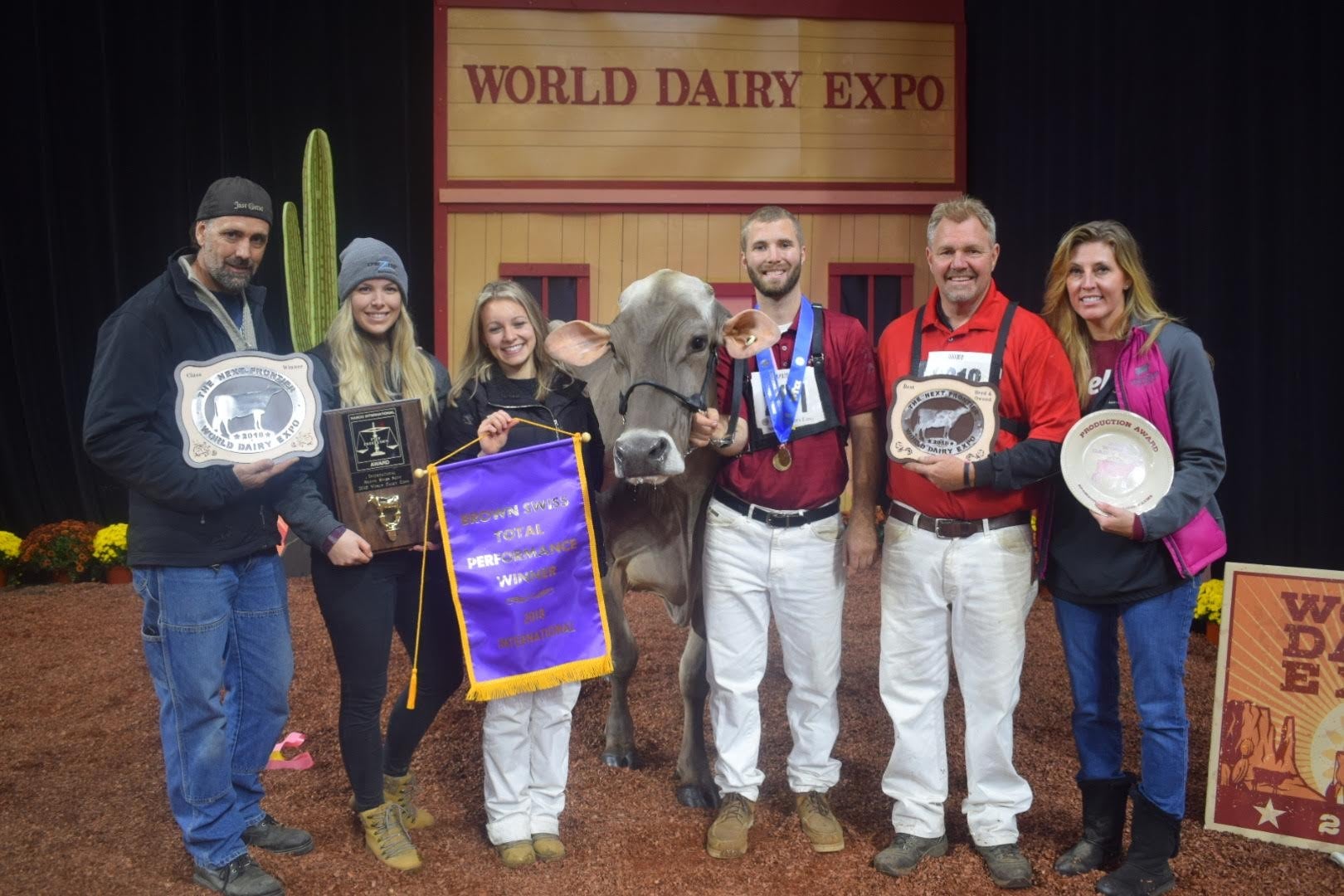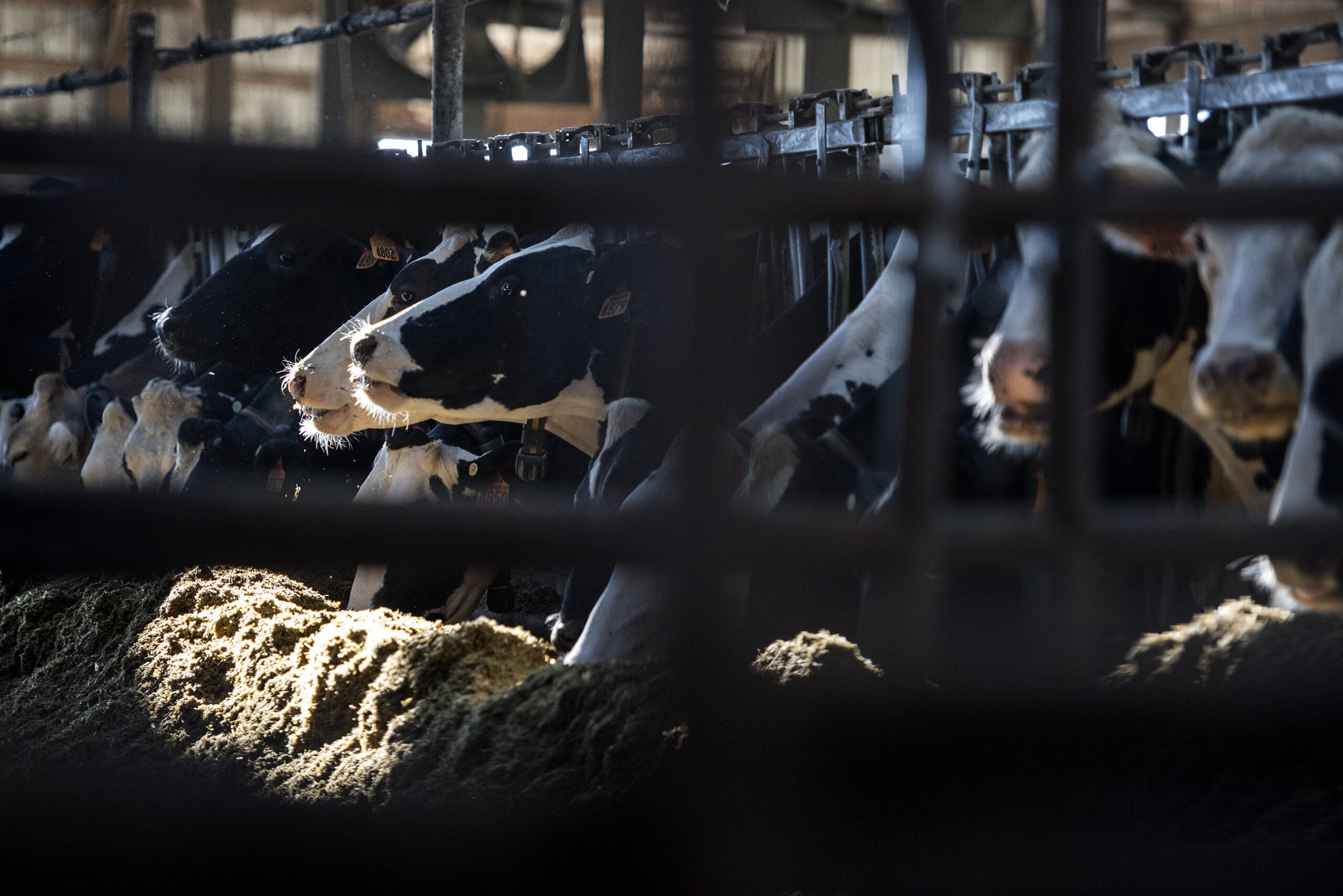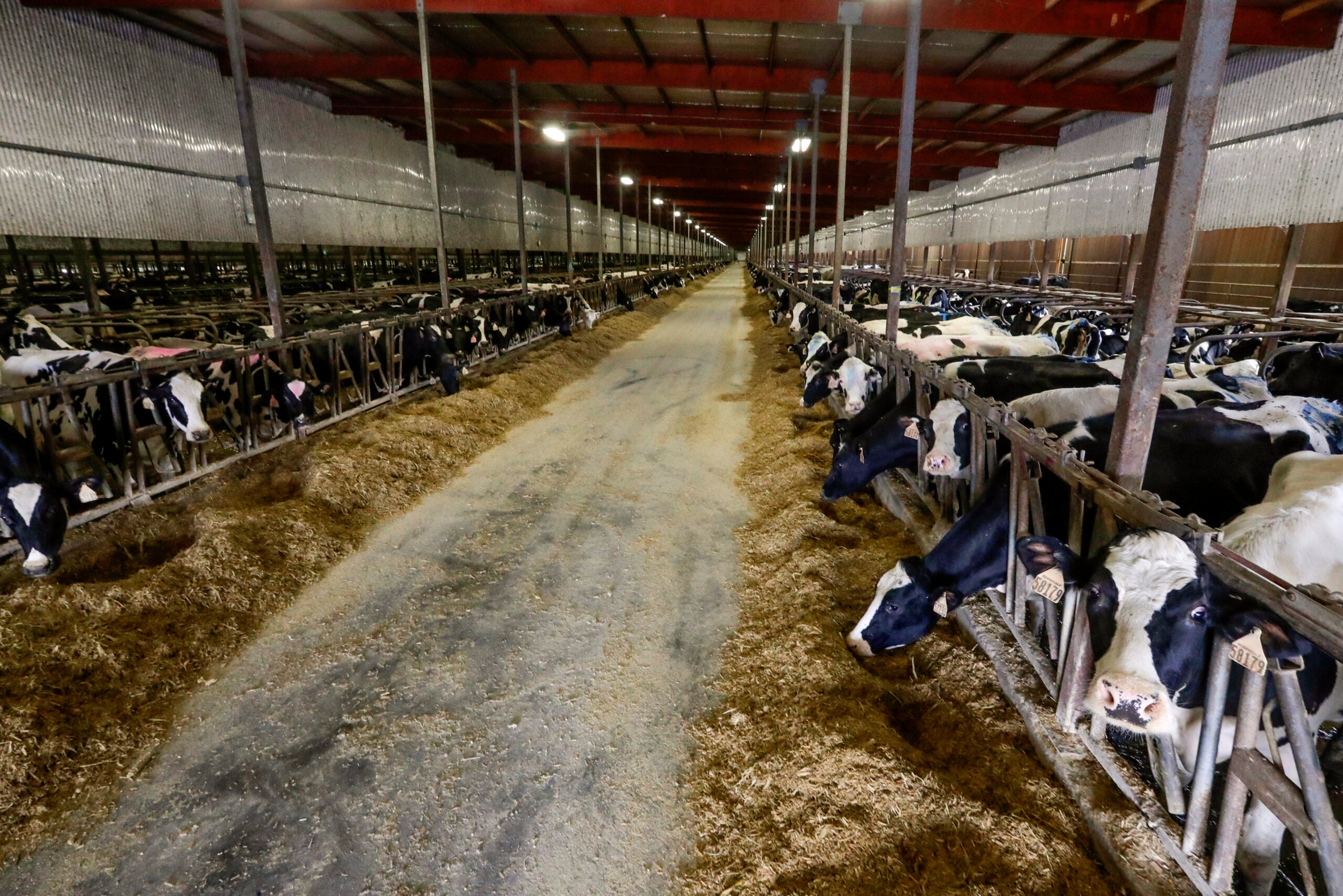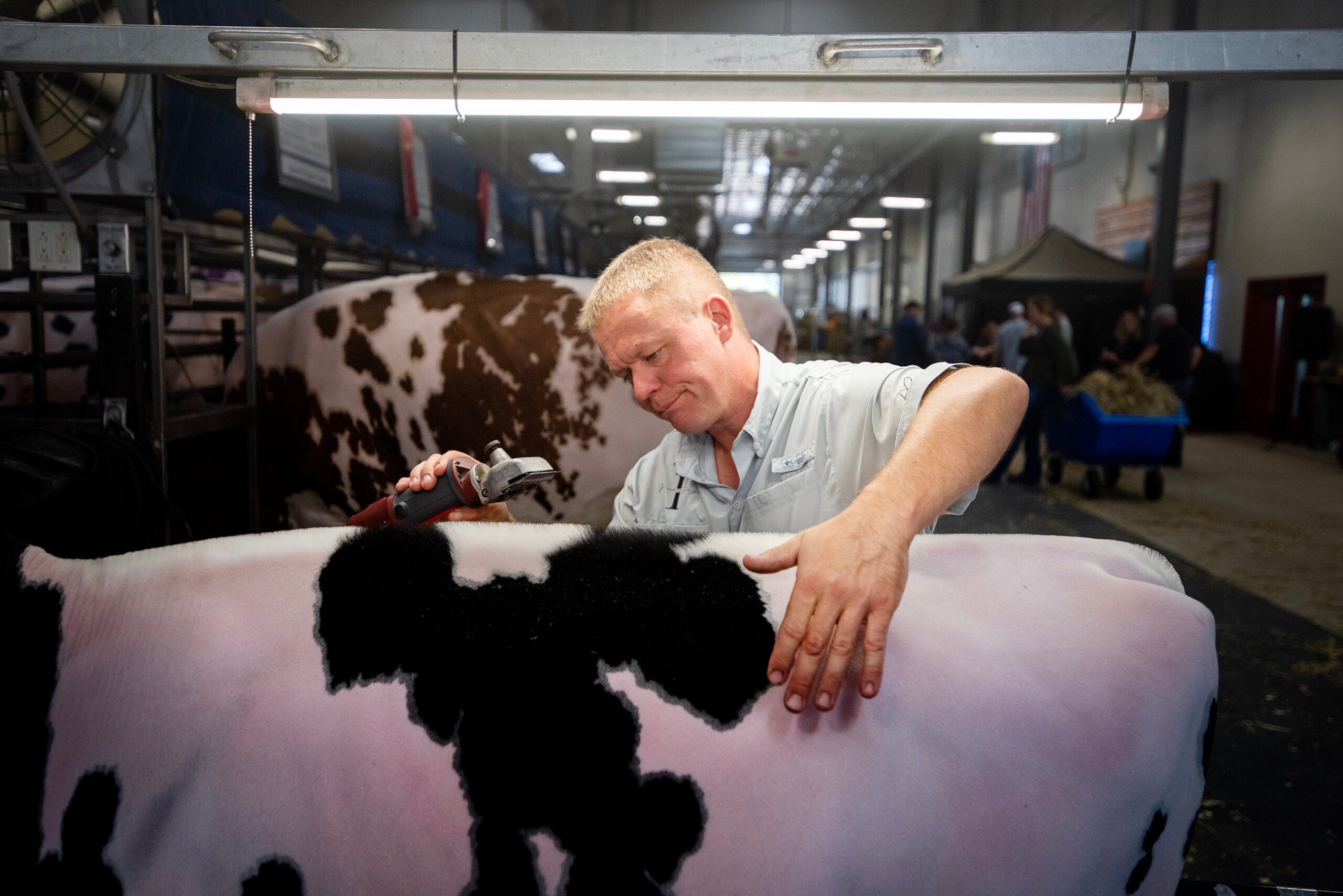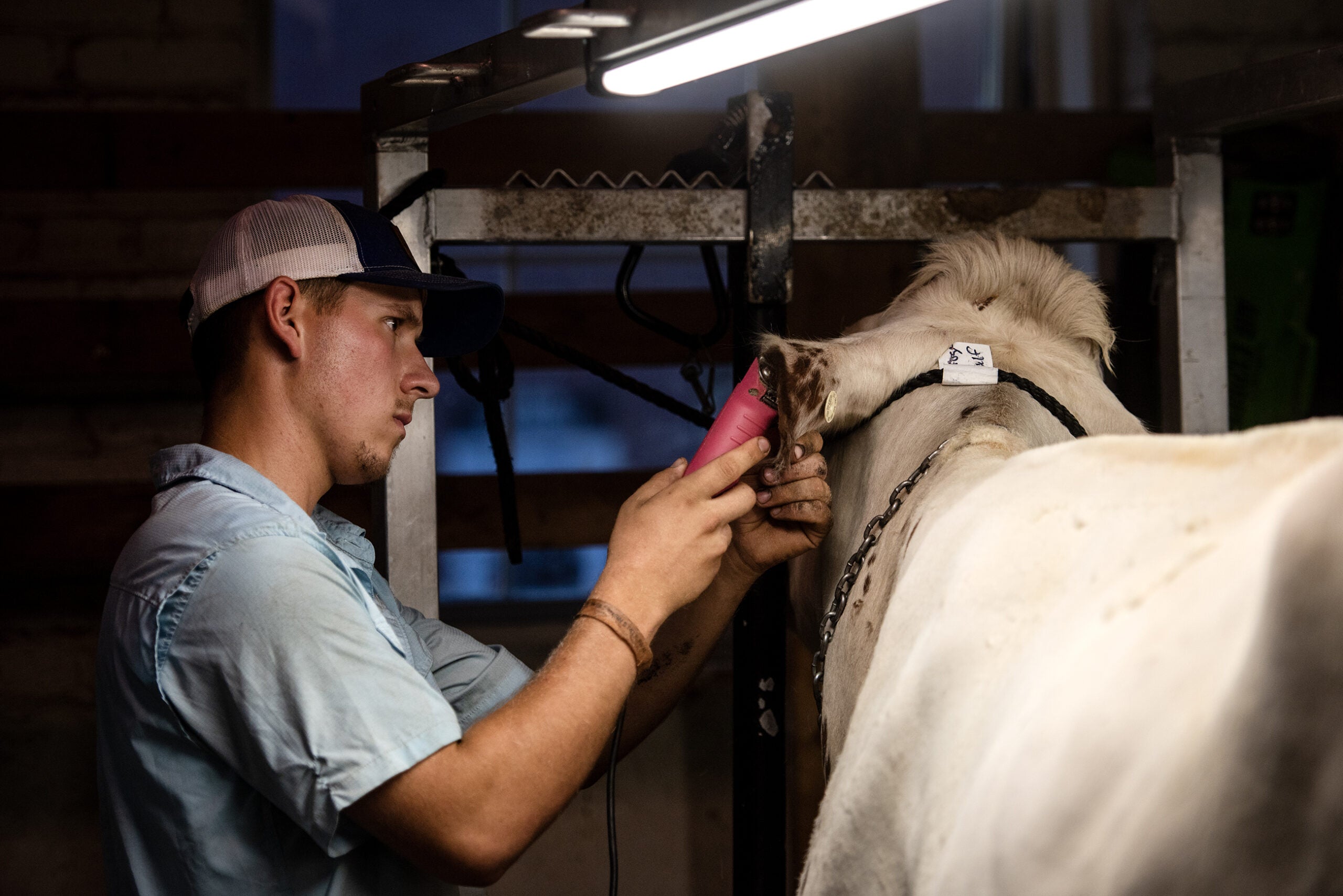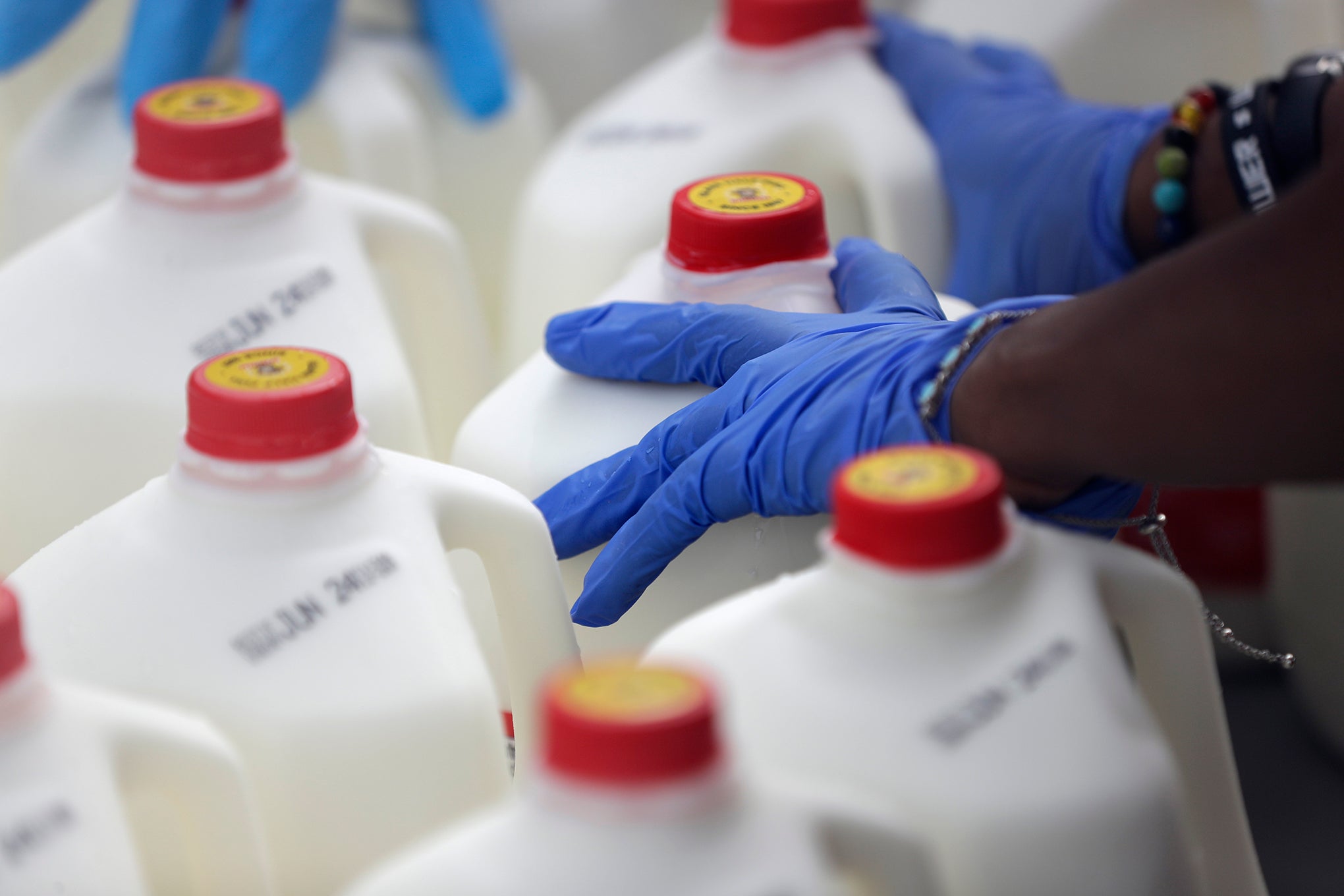The COVID-19 pandemic has changed day-to-day life for Wisconsinites in many ways. But for dairy farmer Bryan Voegeli, much has remained the same.
“Our obligation is to take care of the animals every day at 4:30 in the morning, seven days a week, whether it’s COVID-19 or 40 below or a holiday or whatever,” he said.
Voegeli’s farm, established in 1854, occupies about 1,300 acres between Monticello and New Glarus. When Voegeli’s son eventually takes over, he will be the sixth generation of dairy farmers there. They have about 250 milk cows in their registered brown Swiss herd, and supply milk to a cheese cooperative and a yogurt company, both in Wisconsin.
News with a little more humanity
WPR’s “Wisconsin Today” newsletter keeps you connected to the state you love without feeling overwhelmed. No paywall. No agenda. No corporate filter.
But even though the day-to-day act of operating a dairy herd hasn’t changed much since mid-March, the pandemic has posed huge challenges for the already struggling dairy industry. As schools, restaurants and food service businesses have closed, some Wisconsin dairy farmers have been forced to dump milk.
Voegeli, 61, has been lucky in that regard so far. His farm has been able to reduce production by making adjustments to feed and drying up cows, or stopping their milk production, early. He has not had to dump any milk yet.
But some of his friends have had to dump thousands of pounds, he said. It’s especially painful at a time when milk prices were just starting to go up after several years.
“In our small corner of the world we were just starting to get through one set of difficult times, and now obviously like everyone else we kind of got hit with another,” he said.
Last week, Gov. Tony Evers announced the state will use $50 million of federal coronavirus relief funding for direct payments to farmers. Farmers will apply for the aid through the state Department of Revenue and could receive payments as early as June, according to a press release.
Voegeli’s farm also sells dairy cow genetic material, so industry shows and conferences are an important part of the business. The World Brown Swiss Conference, planned for this fall in Madison, has already been postponed. The World Dairy Expo, which Voegeli is involved in and also happens in Madison, is expected to make a decision on this year’s gathering by July. It makes Voegeli worry about the future.
“Our family has been through a lot,” Voegeli said, noting the farm has made it through the end of the Civil War and two World Wars.
“But I can tell you, in my lifetime this is probably the first time that I felt really challenged to know that I’m in control of where our destiny is going,” he said.
Outbreak Wisconsin is a collaborative project by Wisconsin Watch and WPR following Wisconsin residents as they navigate life during the coronavirus pandemic. The residents will contribute diary entries, in the form of audio, video, text, drawings and photos of themselves, their families and personal and professional lives. That content will be supplemented by interviews and digital content to provide a full picture of how the pandemic is affecting all aspects of life in Wisconsin.

